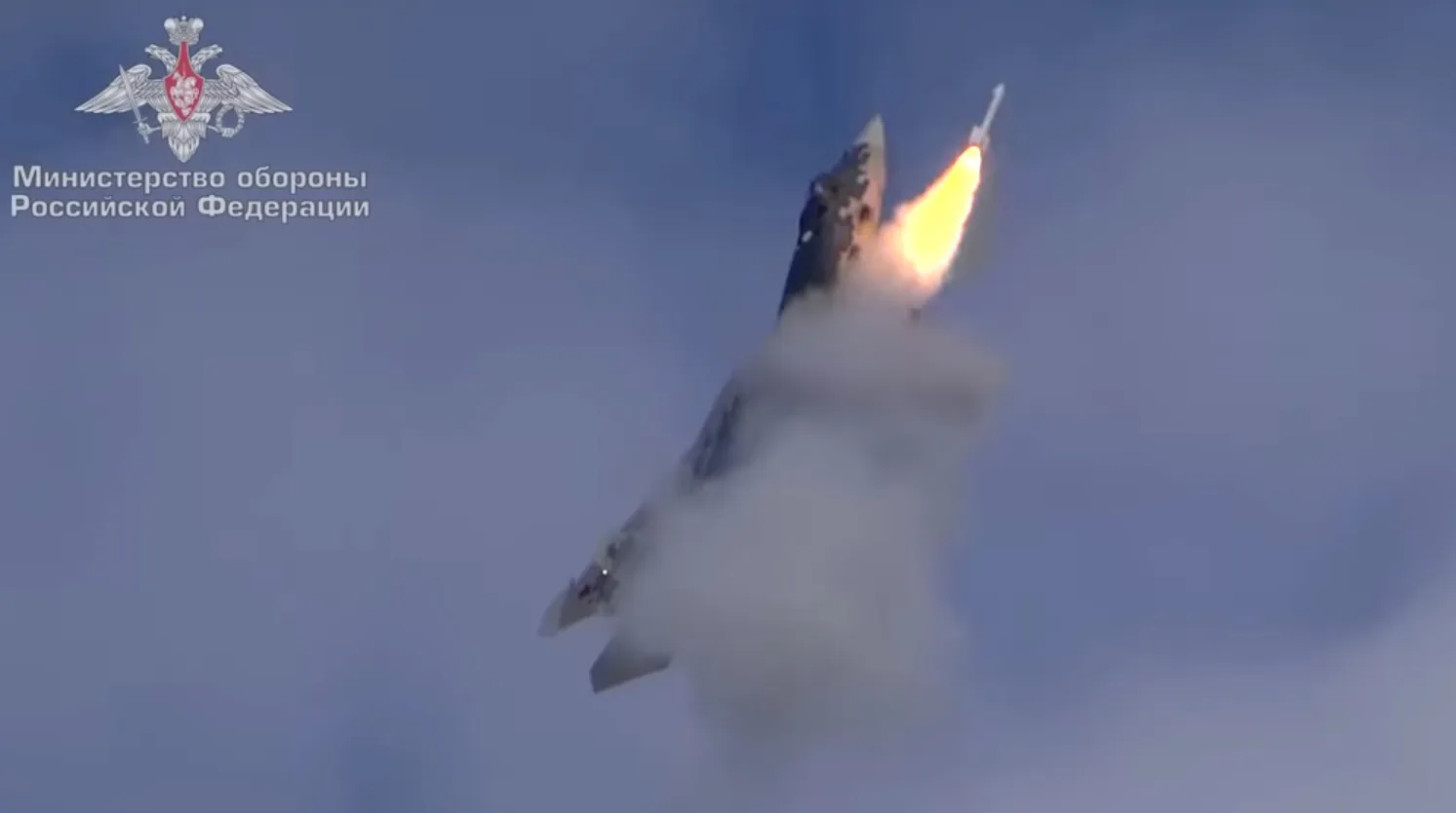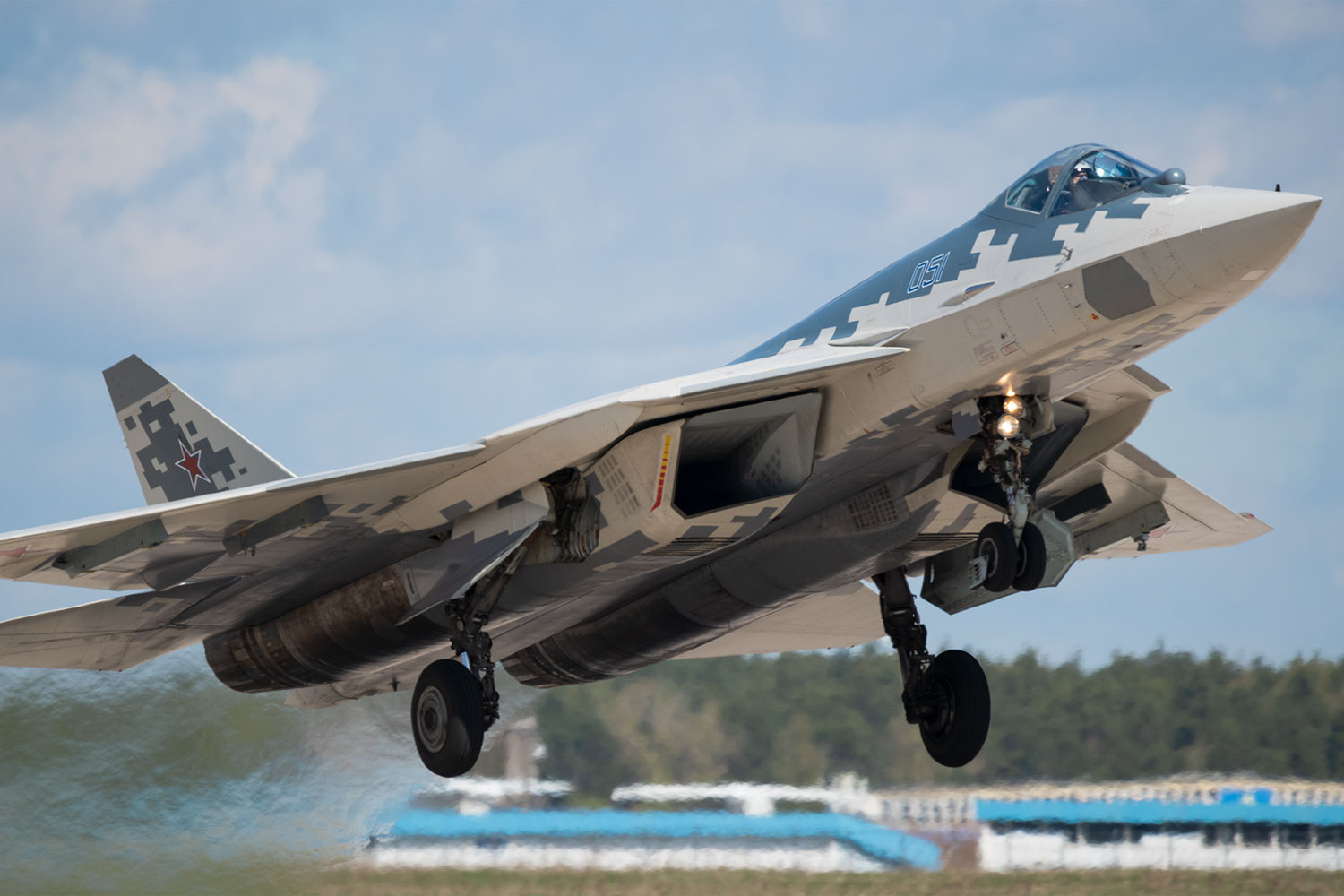Su-57 “Felon”: Firepower Trumps Stealth in Russian Fighter Jet Design
Although its stealth capabilities are often said to be unable to compete with Western fifth-generation aircraft, it is "compensated for" by the Su-57 "Felon's" more powerful and diverse firepower capabilities compared to its Western competitors.
(DEFENCE SECURITY ASIA) — The Russian fifth-generation aircraft, the Su-57 “Felon,” officially entered service with the Russian Air Force in 2020 and was said to be different in its design focus, emphasizing firepower rather than stealthiness.
The design of the Su-57 prioritizes firepower, which sets it apart from other fifth-generation aircraft that are required to “reduce” their firepower to maintain their stealth capabilities.
Western fifth-generation aircraft maintain their stealth and Radar Cross Section (RCS) by placing their weapons inside internal weapon bays, which have limited space, thereby reducing their firepower.
While its stealth capabilities are often argued to be unable to match those of Western fifth-generation aircraft, the Su-57 compensates for this with its more powerful and diverse firepower capabilities compared to its Western competitors.
American and Chinese fifth-generation aircraft, the F-22 “Raptor” and J-20 “Mighty Dragon,” are capable of carrying only six air-to-air guided missiles, such as the AIM-120C/D and PL-15.

The F-35, with a single engine and a lighter design, can carry only four air-to-air guided missiles, although efforts are being made to increase that number.
However, the Su-57, a Russian fifth-generation fighter, is capable of carrying eight air-to-air guided missiles, including six long-range air-to-air guided missiles, the R-37M, and two short-range air-to-air guided missiles.
Currently, the primary air-to-air guided missiles for the Su-57 are the R-77M and R-37M.
With a range of up to 400 km, the R-37M air-to-air guided missile surpasses the capabilities of the air-to-air guided missiles carried by the F-22, F-35 of the United States, and the J-20 of China.
The R-37 air-to-air guided missile not only has the ability to engage distant targets but also has a higher speed of Mach 6, with a larger warhead weighing 61 kg for increased destructive power.


High-altitude fighter aircraft, like the Su-31, are also equipped with the R-37 air-to-air guided missile.
With its extremely long-range air-to-air guided missile operation, the Su-57 can engage targets from an extreme distance of 400 km, posing a threat to various enemy aircraft, including fighters, bombers, early warning aircraft, and other targets.
For targeting ground targets, the primary air-to-ground guided missile carried by the Su-57 is the KH-59Mk2, which can destroy fortified military positions from a range of up to 300 km.
The KH-59Mk2 air-to-ground guided missile is equipped with a 320 kg penetrator warhead, and efforts are underway in Russia to equip it with a more powerful warhead capable of hitting a wider area.
Due to its subsonic speed, the KH-59Mk2 air-to-ground guided missile can travel further despite its smaller size.


The Russian Air Force has tested the use of the KH-59Mk2 air-to-ground guided missile in combat zones such as Ukraine and Syria.
In addition, the Su-57 fighter aircraft is equipped with anti-radiation guided missiles like the Kh-58UShKE to neutralize enemy communication centers, radars, and air defense systems.
Russian fifth-generation aircraft will also be equipped with small-sized cruise guided missiles, the KH-38ME (with a range of 400 km), and hypersonic guided missiles, the Kh-47M2 “Kinzhal,” capable of hitting targets up to 2,000 km away. — DSA

DEFENCE SECURITY ASIA APPS
To advertise contact admin: haikalhamas73@gmail.com


Comments are closed.